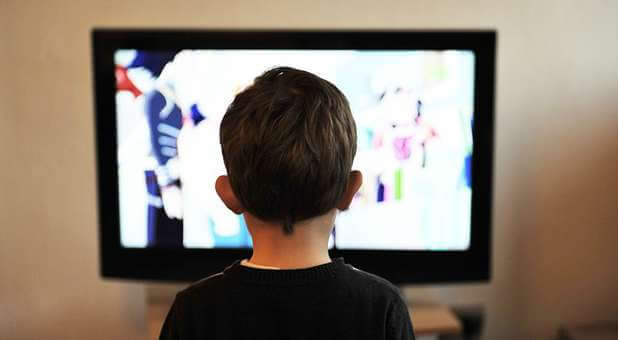I’ve been writing and producing films and television shows in Hollywood for three decades, but I’ve been a consumer of media for a lot longer. Some of the moments I treasure most from my childhood were those evenings sitting with my family watching TV… together.
When I was young, the TV set was a destination all of us shared and enjoyed. I don’t believe we were alone in that. At one time, American homes were filled with that glowing, flickering warmth of families spending time together, gathered to watch their favorite shows. And we would laugh, cry and most of the time, be uplifted by the storytelling. It was a special time—not just for my family, but I believe for tens of millions of American families.
But that’s not the case anymore. Shared family media is a lost cultural experience. Advances in technology have left us in separate rooms watching niche media content on our own TV sets, PCs, electronic book-readers, tablets or smartphones—all disconnected from one another.
But that’s just part of the problem. As the media landscape has become fractured by a thousand different entertainment choices 24/7, 365 (for instance, there were 500 original, scripted TV programs produced in 2017 alone), the competition for eyeballs has become fiercer than anything I have experienced in 30 years of telling stories. And the race for sensational ratings or “click-throughs” in a more competitive marketplace has given rise to more sensational programming choices. It’s inevitable. If you are a programmer trying to steal market-share from your nearest competitor, you think the only way to do it is by getting louder, edgier and more controversial. If all your competitors follow that same path, it leads everyone over a content cliff.
Consequently, entertainment choices today have been coarsened to the point that some of the most popular shows/films/web series with viewers and critics are grisly dramas with graphic depictions of violence and protagonists pursuing their darkest instincts. However well-made they might be as art, content featuring crystal meth dealers, serial killers, vampires, zombies, shameless fathers or politicians and other anti-heroes who routinely lie, cheat and steal now rule the airwaves and cyberspace. Rather than come together around entertainment that is life- and hope-affirming and suitable for family viewing, we are a culture voraciously consuming content that appeals to our basest desires and temptations. Is it any wonder that every aspect of our cultural experience, from politics to religion to social movements, is coarser, less civilized and more polarized than ever? In effect, I believe we are becoming what we consume. No wonder we need a #MeToo social re-education.
And families now have very few opportunities to connect over media because there are precious few programs they can actually watch together.
For full disclosure, I am currently producing one program that is unapologetically a throwback to the kind of shows we all watched back in the day. It is a one-hour, period drama called When Calls the Heart that airs in the U.S. both on the Hallmark Channel and Netflix. Now in fifth season, it is a series about hope, faith and love set in a 1910 coal-mining town struggling to overcome all manner of hardship, but doing it together with—faith, hope and love. And it is has built a loyal following of several million fans who call themselves “Hearties” and ravenously consume the show like it’s the last food on earth. That’s because they are under-served and underfed by an entertainment business that, with very few exceptions, has forgotten how to create content for them, or strategically decided to ignore them. And our show has spawned a nonprofit movement to lobby for more family-friendly media content called “Hearties International,” along with “Hearties Parties” that meet together weekly all over the country for food, fellowship and mutual love of the show.
I have also written, with my co-author Michelle Cox, a 40-day devotional, When God Calls the Heart (coming February 2018) that families can read together while watching our show as a resource to spur discussion of the important virtues in each episode. They will be able to use it both as a tool to teach important values of citizenship and civility and frankly, the Golden Rule—treat others as you would wish to be treated—that seems to be completely MIA in our culture today.
If you’re looking for drug-dealers, dead bodies and morally relativistic storylines, you won’t find them here. Hope Valley is a place where the great virtues rule, where life is filled with soul-nourishing themes like forgiveness, redemption, sacrifice, courage, honesty, integrity and dependence on God.
The legendary broadcaster David Frost once said, “Television is an invention that permits you to be entertained in your living room by people you would never have in your home.” Everywhere I travel, I meet people who are weary of those daily home invasions. They long for a return to a time when the airwaves (and now bandwidth) were filled with content suitable for whole families to watch together. The content providers once competed with each other to fill their schedules with those kinds of entertainment choices. Today, “family hour” is absolutely on life-support and facing extinction. Is that really a good thing for our society?
I believe there is a vast, underserved audience starving for a new renaissance in family media content. My colleagues and I stand ready to keep our chisels working round the clock.
Brian Bird is executive producer and co-creator of When Calls the Heart and co-author, with Michelle Cox, of the devotional book, When God Calls the Heart.

